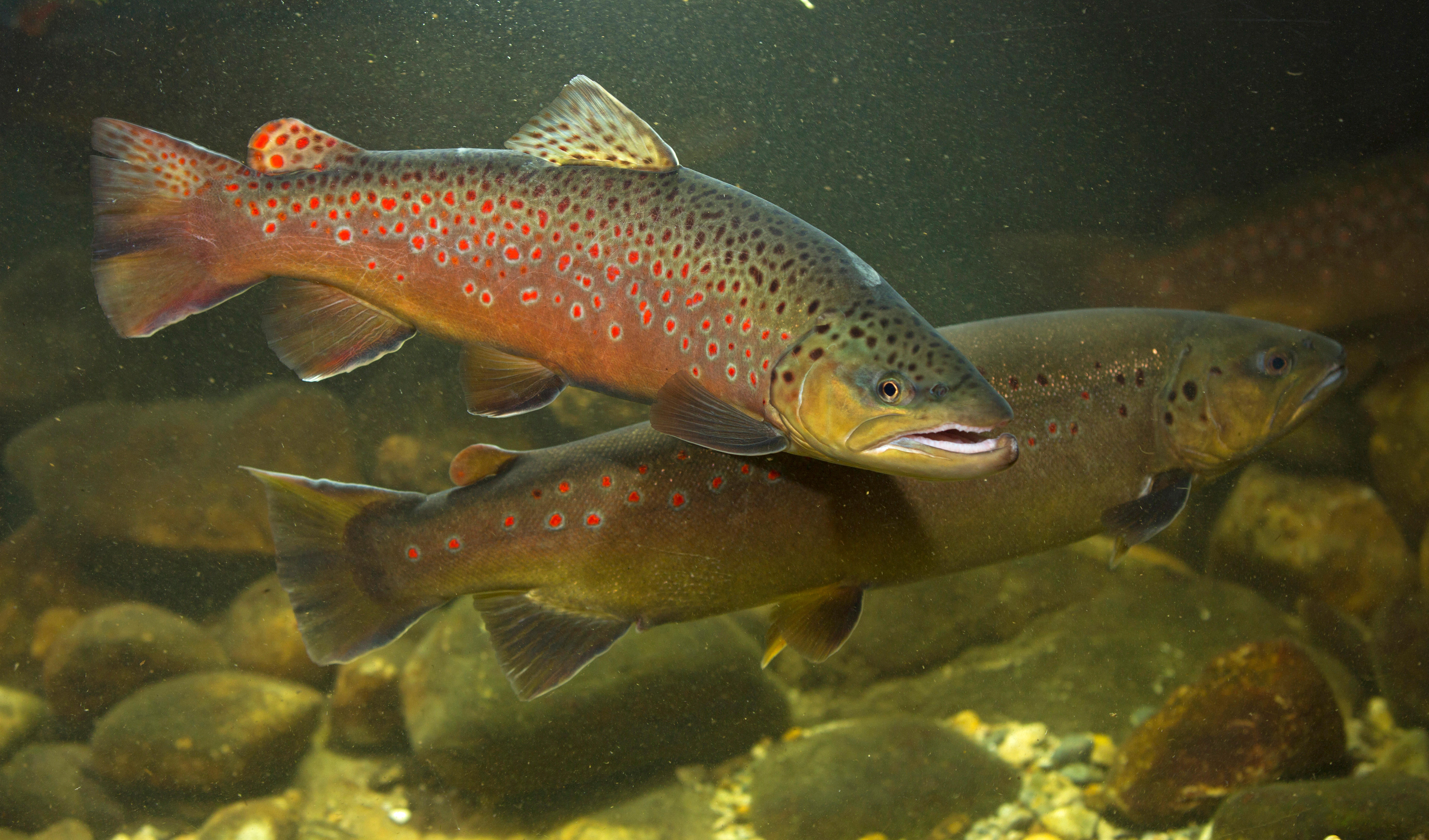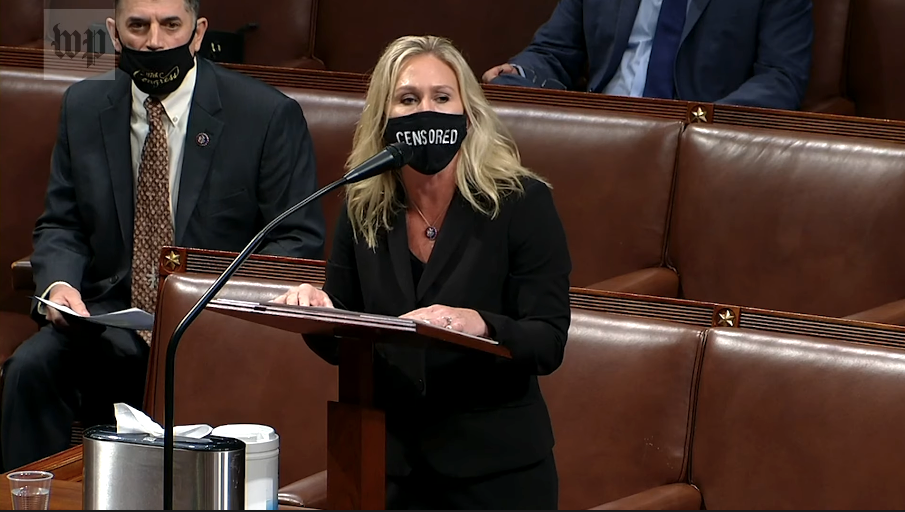6 bizarre ways animals have adapted for survival
Sometimes, in the long fight for survival, things can get a little weird


A free daily email with the biggest news stories of the day – and the best features from TheWeek.com
You are now subscribed
Your newsletter sign-up was successful
Over millions of years, in their constant, harrowing battle for survival, animals have evolved and adapted to often impossibly harsh environments. Frequently, these adaptations objectively make sense, like flippers to help with swimming, or camouflage for hiding from predators. Other adaptations are just plain weird. But as Jeff Goldblum wisely said in Jurassic Park, life, uh, finds a way. Hey, whatever it takes to stay alive.
Here, a few bizarre evolutionary quirks found throughout the animal kingdom:
The Week
Escape your echo chamber. Get the facts behind the news, plus analysis from multiple perspectives.

Sign up for The Week's Free Newsletters
From our morning news briefing to a weekly Good News Newsletter, get the best of The Week delivered directly to your inbox.
From our morning news briefing to a weekly Good News Newsletter, get the best of The Week delivered directly to your inbox.
Most animals need lungs to breathe, but a family of salamanders called plethodontids have none. Instead, they breathe through the cells and vessels in their skin. Scientists aren't sure why these salamanders — nicknamed lungless salamanders — evolved this way, but they do know how: A copy of a key lung gene mutated, making the skin capable of oxygen exchange. Scientists also found a surfactant protein — necessary for immunity and lung health — on these salamanders that could one day be useful in treating human patients who suffer from lung disease.
The white-throated snapping turtle has a special skill: It can breath underwater. But it doesn't have gills. Instead, it takes the oxygen from water in through its bottom. The process — called cloacal respiration — means oxygenated water is sucked into the turtle's anus, where the oxygen is removed, and deoxygenated liquid is expelled back out of the turtle's butt. (There is a special sac inside the turtle designed to separate the breathing from the pooping, in case you were wondering.) This adaptation helps the white-throated turtle hide from predators and stay alive throughout the winter months.
A free daily email with the biggest news stories of the day – and the best features from TheWeek.com
The female brown trout is pretty picky about her mates, and if she's not so sure about a guy that's courting her, she knows what to do to get him off her back: Fake an orgasm. When the brown trout spawn, both the male and the female fish quiver in the water and simultaneously release their sperm and eggs. But over time, the females have learned they can shake it, fake it, and actually preserve her eggs (which take a lot of energy to produce) until the right stud comes along. Researchers at Sweden's National Board of Fisheries observed female trout faking their own orgasms 69 out of 117 times. The theatrics paid off. "The more false orgasms a female had, the more males were present when she finally released her eggs," writes Jon Copley at the New Scientist. Hopefully one of those males will be the strongest, fittest of the bunch, ensuring her babies have the best chance of survival.
Flatworms are hermaphrodites, meaning they can inseminate and be inseminated — they are both male and female. However, the female role is much more demanding: The male has a never-ending amount of gametes with which to reproduce, but the female must carry the relatively large eggs until they are developed. She's also the one left to care for them after they hatch. So, when worms want to mate, they fight to be the inseminater, rather than the inseminatee, because once the deed is done, the male worms get to simply slither away. The fight begins with two worms showing their penises, which are then used as weapons to stab and inseminate the other worm. Not only is the loser subject to a painful prick, they're stuck with the rest of the reproduction responsibilities.
When these ants from the island of Borneo sense an intruder could harm their nest, they sacrifice their own life to save their family and protect their territory. The ants have special glands inside their bodies that are filled with a sticky, yellow, poisonous goo. In fact, most of their bodies are dedicated to storing this deadly stuff. They latch on to an intruder, then squeeze their own bodies until they burst, spewing yellow goo all over the enemy. It's a genetic adaptation that defies self-preservation. But "it makes perfect sense genetically," Professor William Foster of the University of Cambridge told New Scientist. "Fight for your siblings, protect the nest."
6. Chemical-resistant bed bugs
Before the common bedbug, also known as Cimex lectularius, infiltrated our sheets, it made its home in caves, feeding off slumbering bats. When humans appeared on the scene, the bugs began their slow evolution process, shifting their schedule to feed at night, not during the day. Their bodies changed to accommodate their new human hosts; bedbugs that feed on humans have longer, thinner legs compared to their bat-loving cousins, and researchers speculate this is because they no longer need the strength to hang upside down on cave walls. As humans have tried to combat bed bugs with pesticides, the bugs did them one better by developing super powers — like a genetic variation that makes them resistant to chemicals, ensuring that wherever humans go, bed bugs shall go, too.
Kimberley Moran is a freelance writer and gifted and talented teacher living in Maine. Her writing has also appeared at GOOD, MarieClaire.com, Noodle.com, MiddleWeb, and other outlets.
-
 Antonia Romeo and Whitehall’s women problem
Antonia Romeo and Whitehall’s women problemThe Explainer Before her appointment as cabinet secretary, commentators said hostile briefings and vetting concerns were evidence of ‘sexist, misogynistic culture’ in No. 10
-
 Local elections 2026: where are they and who is expected to win?
Local elections 2026: where are they and who is expected to win?The Explainer Labour is braced for heavy losses and U-turn on postponing some council elections hasn’t helped the party’s prospects
-
 6 of the world’s most accessible destinations
6 of the world’s most accessible destinationsThe Week Recommends Experience all of Berlin, Singapore and Sydney
-
 Democrats plan to make every House Republican take a vote on GOP Rep. Marjorie Taylor Greene
Democrats plan to make every House Republican take a vote on GOP Rep. Marjorie Taylor GreeneSpeed Read
-
 Judge unsure if Kevin Spacey case will 'continue or collapse' after accuser pleads the 5th
Judge unsure if Kevin Spacey case will 'continue or collapse' after accuser pleads the 5thSpeed Read
-
 Devastating floods in Mozambique can now be seen from outer space
Devastating floods in Mozambique can now be seen from outer spaceSpeed Read
-
 Robin Wright has finally commented on Kevin Spacey's sexual misconduct allegations
Robin Wright has finally commented on Kevin Spacey's sexual misconduct allegationsSpeed Read
-
 Indiana science teacher stops middle school shooting: 'He's a hero today'
Indiana science teacher stops middle school shooting: 'He's a hero today'Speed Read
-
 Here's how Ridley Scott replaced Kevin Spacey in All the Money in the World
Here's how Ridley Scott replaced Kevin Spacey in All the Money in the WorldSpeed Read
-
 Kevin Spacey cut from completed Ridley Scott movie, replaced by Christopher Plummer
Kevin Spacey cut from completed Ridley Scott movie, replaced by Christopher PlummerSpeed Read
-
 Netflix cuts ties with Spacey as sexual assault allegations snowball
Netflix cuts ties with Spacey as sexual assault allegations snowballSpeed Read
